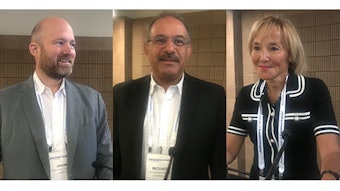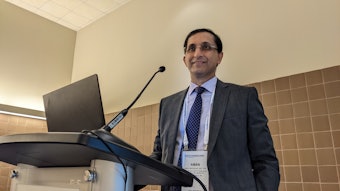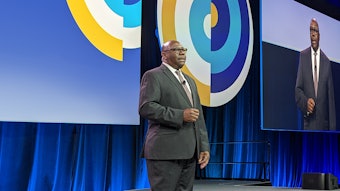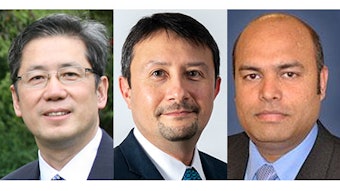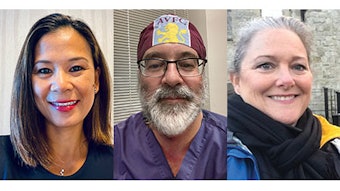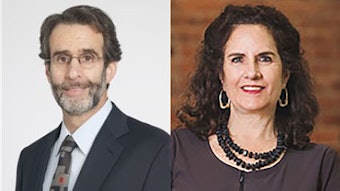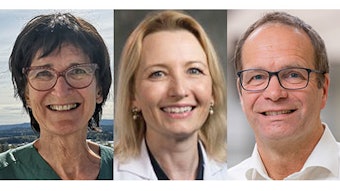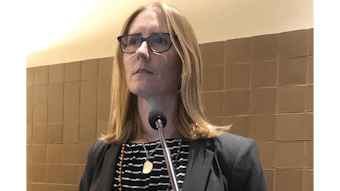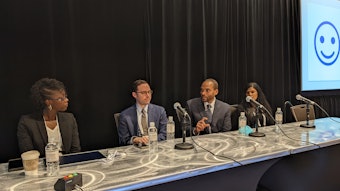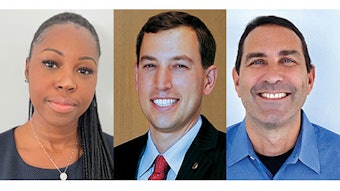Anesthesiologists well-positioned for hospital leadership
Eight essential skills to be effective

In the 2022 session “Anesthesiologists as Hospital Leaders: How Can We Contribute Beyond the OR” Amy Lu, MD, MPH, Chief Quality Officer at the University of California San Francisco, said that “anesthesiologists are well-positioned to be effective hospital leaders” because leadership principles such as teamwork and communication are evidence-based to them, and humble inquiry and building psychological safety are core tenets.
She identified eight essential skills anesthesiologists must have to be effective hospital leaders. They are communication principles and building a positive culture, improvement methodology, engagement across the continuum of care, operations management, teamwork approaches, legal knowledge and human resource experience, organizational skills and strategic planning, and analytical and technical skills.
She recommended books such as “The Fearless Organization,” by Amy C. Edmondson, communications courses locally and regionally, ASA’s Leadership Development Suite, and other leadership programs.
Aalok Agarwala, MD, MBA, Chief Medical Officer and Interim Chief of Anesthesia at Massachusetts Eye and Ear in Boston, described the number of advanced degrees available to help in the pursuit of a leadership position. They include Master of Business Administration (MBA), Master of Public Health Administration (MPH), Master of Health Care/Health Services Administration (MHA/MHSA), Master of Public Policy (MPP), PhD, and Juris Doctor (JD). Each provides a different approach to leadership, he said.
For example, a combined MD/MBA helps with potential careers in health care administration, practice leadership, pharma/biotech/industry, consulting, entrepreneurship, or finance/venture capitalist, Dr. Agarwala said. A combined MD/MPH leans toward careers in administration, clinical research, community and public health, health care policy, and global health. An MD/MHA offers the potential for a career in health care and hospital administration and practice leadership.
“Adding advanced degrees to your medical degree can help you set aside dedicated time to acquire knowledge and skills that may be difficult to acquire otherwise,” said Dr. Agarwala. They can be a differentiator, creating opportunities that may require more extensive experience otherwise, allowing you to explore areas of health care outside of the OR, or kickstart a transition away from clinical medicine.
On the flip side, he said it is important to recognize these degrees are a significant investment of time and money and may not necessarily result in a higher-paying job than what you currently have.
He suggested that attendees know what their “why” is in pursuing a leadership role. “Is it because you want knowledge and skills, you want to differentiate yourself and get a promotion, you want legitimacy, to network, reduce clinical duties, or perhaps career pivot?” he asked.
George Blike, MD, MHCDS, Professor of Anesthesiology at Geisel School of Medicine at Dartmouth in Hanover, New Hampshire, said understanding the paths to leadership provides needed insight. He suggested that attendees check out the organizational charts, committee structures, and job descriptions to see how an organization makes decisions.
Referencing a previous presentation by Cindy Cahill, PhD, Dr. Blike said an individual’s leadership potential is not fixed and “potential” is defined as the kind of work someone can do in the future. Future work potential is based on the accumulated skills and experience, as evidenced by past achievement, ability to learn new skills, and willingness to tackle bigger, more complex assignments. He said people’s “potential” changes several times over the course of their careers and to capitalize on the leadership potential, one needs to discern the key work requirements at various leaderships levels and what is needed to make the transition from one level to the next successfully.
Visit Annual Meeting Daily News for more articles.
